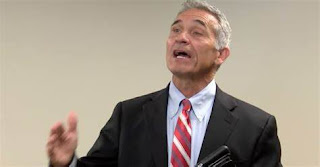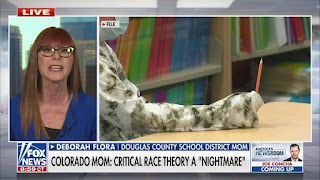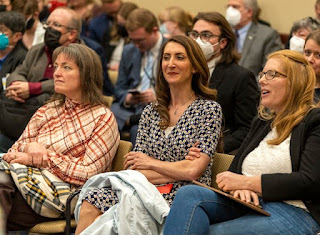Let's set aside, for a moment, the problems with trying stifle thoughts and ideas and the moral and ethical issues involved, or the heavy irony of people who say they hate cancel culture but want to cancel some authors. Banning books is just dumb for some very practical reasons.
Want to make something popular? Ban it.
This has been true forever. Mark Twain took out newspaper ads to thank the people who banned Huck Finn because they helped make copies. When our local scolds got up in arms about a performance of La Cage Aux Folles, it sold out. Today, after news spread of the banning of Maus, it was suddenly on the best-seller list again. No high school teacher with half a brain ever tells students, "Do not do X." Never, for instance, say, "I don't want another peep out of you guys," because you know what the next sound you hear will be.
This is the 21st Century.
I keep thinking that the current wave of book banners will be really upset when they hear about the internet. Smart phones! Snap chat! Tik tok! There are so many avenues for children to access whatever content they want to find that there could be nothing less productive than pulling a book from the school library. That's before we even get to publicly available stuff like streaming Squid Games (of course, that's only violence, which is somehow less distressing to folks). Trying to control all the media paths to your own child is a major challenge, but trying to control them for other people's children is just folly. You will fail.
And the effects of exposure are...?
For the life of me, I can't find research showing any kind of trauma or damage coming from reading books that some parents disapprove of. Nothing. And we've been at the whole Objecting To Books thing for a while--back in the late 18th to early 19th century, lots of folks were pretty sure that reading novels was Very Bad for women. Fredric Wertham published Seduction of the Innocent in 1954 to make everyone aware that comic books were going to lead to all sorts of juvenile delinquency and homosexuality. And yet after all this time, zero evidence that reading causes trauma or delinquency.
And the thing is, one of the features of a book is that the moment something alarms or even just discomfits you, you can instantly disengage--not like a movie or video.
This quote
From a student objecting to a book ban in Texas
I'm simply going to say that no government—and public school is an extension of government—has ever banned books and banned information from its public and been remembered in history as the good guys.
Using children as an excuse
The whole "protect the children" thing sure seems at times just to be a dodge, that some folks like to use the children as an excuse to ban things that they want to ban for everyone. Here's a god rule of thumb- if you are worried about protecting the children when it comes to naughty books, but not so much when it comes to the effects of poverty and racism and hunger and illness and gunfire, and if you nod your head when politicians say things like “I’ve never really felt it was society’s responsibility to take care of other people’s children," I am going to suspect that you are using children as an excuse to ban what you want to ban.
This is not a trust-building exercise
Book banning sends a message to your kids, and the message is "You cannot be trusted and are probably just one bad page turn away from turning into a terrible person." Maybe that's an approach t9o parenting that you want to try. I don't, and I wouldn't really recommend it.
Even worse is sending the message to some children that Their Kind is not welcome and Their Kind should just stay quiet and not let anyone know who they really are. Imagine how destructive that message could be. Imagine how destructive that message will be if you have one of Their Kind growing up in your very own home.
You can't control other parents.
Seriously. One of the weird aspects of the current parents' right spasm is the parents saying, "I will decide what is right for my child, and also what is right for other parents' children, because I should have absolute control over my child's life but also that privilege only belongs to right-minded people who agree with me and not those crazy parents over there."
Yes, there are moral and intellectual and ethical arguments to be made against book banning, but let's face it--this is another argument in which everyone thinks they're on the side of the angels. I feel certain book banners are wrong, but I am equally certain that they are doomed to utter failure, because dumb ideas tend to fail.
And no, this does not mean I'm totally cool with exposing my four year olds or my grandchildren to a steady diet of porn. We have some house rules about what kinds of things they do or don't experience, but those are our rules for our house and I have no interest in imposing those rules on everyone else. And if difficult things emerge, we will sit down and talk about them, because a far more effective technique for dealing with difficult or distressing or unfamiliar stuff is, rather than trying to block it all from your child's life, instead to equip your child to deal with it, and sit with them and talk them through it. Listen to them; a lot of what may freak you out they will simply find boring for years--until they don't any more--so pay attention. This is how you deal with books and music and, for that matter, your neighbor's pro-Trump F-bomb flags.







